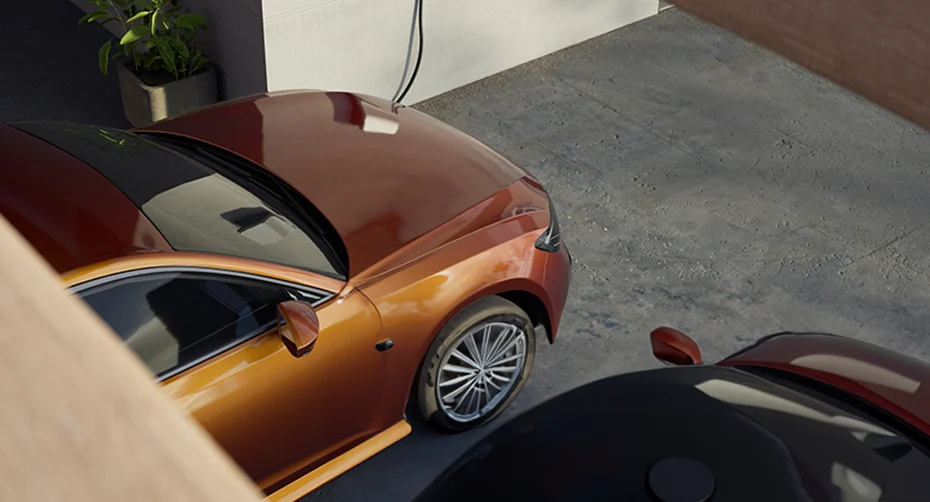 Learn how to effectively charge two electric cars at home with this comprehensive guide. From selecting the right charging equipment to managing energy consumption, we'll cover all the information you need to keep both vehicles charged and ready to go.Â
Learn how to effectively charge two electric cars at home with this comprehensive guide. From selecting the right charging equipment to managing energy consumption, we'll cover all the information you need to keep both vehicles charged and ready to go.Â
As electric vehicles continue to gain popularity, many households are finding themselves with two or more EVs to charge at home. Fortunately, with the right equipment and some careful planning, it's possible to effectively charge two electric cars at home. In this comprehensive guide, we'll walk you through the process of setting up your charging station to accommodate multiple vehicles.
Selecting the Right Charging EquipmentÂ
First, you'll need to select the right charging equipment to support two vehicles. You'll want to choose a charging station that can handle both vehicles' charging needs simultaneously without sacrificing performance. Look for a dual charging station or a smart charger that can monitor and adjust the charging speed for each car as needed.Â
Managing Energy ConsumptionÂ
Next, you'll need to consider how to manage energy consumption. Charging two electric cars at the same time can put a significant strain on your home's electrical system. To avoid overloading your electrical panel, you may need to install a separate circuit and upgrade your electrical service. Additionally, consider scheduling charging sessions during off-peak hours when energy rates are lower.Â
Sharing the Charging StationÂ
Finally, you'll need to develop a system for sharing the charging station between the two vehicles. This could include designating specific days for each car to charge, or using an app or smart charging technology to manage the charging schedule. Make sure to communicate clearly with all drivers to avoid conflicts or misunderstandings.Â
With these tips in mind, you can confidently set up your charging station to accommodate two electric cars. Enjoy the convenience and savings of electric vehicle ownership without any added stress.Â
Make charging two electric cars at home easy and stress-free by choosing the right charging equipment, managing energy consumption, and developing a system for sharing the charging station. Check out Webasto Charging's selection of charging stations to get started.Â
 hbspt.cta._relativeUrls=true;hbspt.cta.load(3425125, 'f9ff549a-fd6c-4142-8f72-6edbacefc7e2', {"useNewLoader":"true","region":"na1"});
hbspt.cta._relativeUrls=true;hbspt.cta.load(3425125, 'f9ff549a-fd6c-4142-8f72-6edbacefc7e2', {"useNewLoader":"true","region":"na1"});
Solar power inverter, also known as solar inverter, is a crucial device that converts the direct current (DC) generated by solar panels into alternating current (AC). Solar panels produce DC power, while most household appliances and power grids use AC. The main function of a solar converter is to convert DC into AC that meets the requirements of the power grid or household appliances. Ensure that the solar power generation system can be seamlessly connected to the existing power infrastructure and realize the effective utilization of solar power.
Features
1. Power matching: According to the total power of solar panels and expected load requirements, select a solar inverter with an appropriate power rating. Generally speaking, the rated power of the inverter should be slightly greater than the total power of the solar panels to ensure normal operation under different lighting conditions.
2. Efficiency: High-efficiency solar inverters can reduce energy losses and improve the overall efficiency of solar power generation systems. When choosing an inverter, pay attention to indicators such as conversion efficiency and MPPT efficiency.
3. Reliability: Solar inverters are the core equipment of solar power generation systems, and their reliability directly affects the long-term stable operation of the system. Choose brand products with good reputations and quality guarantees and understand their after-sales service.
4. Functional characteristics: According to actual needs, select solar inverters with corresponding functional characteristics, such as MPPT function, grid connection protection function, monitoring and communication function, etc.
In conclusion, solar inverters are an indispensable and important part of solar power generation systems. Understanding its functions, types, and selection points can help users choose the right solar inverter and improve the efficiency and reliability of solar power generation systems.

